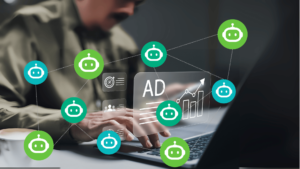In the ever-evolving landscape of marketing, efficiency is paramount. With the right tools and strategies, marketing teams can significantly reduce the time spent on routine tasks, allowing them to focus on creative and strategic initiatives. Here are ten simple techniques that can help your marketing department save time and enhance productivity.
1. Language translations: Efficient multilingual content
For companies operating across multiple markets, language translation can be a daunting task. AI-powered translation tools have greatly improved, making it easier to translate content into various languages quickly. A highly effective approach is to use two AI systems: one for the initial translation and another trained to check the quality. This dual-AI method ensures accuracy while speeding up the process. While some translations might be deemed “good enough” without human intervention, for the highest standards, human approval remains essential. This approach saves time and maintains quality across all markets.
2. Email marketing: Automation and AI for enhanced personalisation
Email marketing remains a powerful tool, and when combined with AI, it becomes even more effective. Modern CRM tools can trigger emails based on user behaviour—such as sign-ups, purchases, or engagement with previous content. AI can further enhance this process by creating email content, either entirely generated by AI or as AI-supported drafts that humans refine. This combination allows for highly personalised and timely communication with customers, improving engagement rates while saving your team considerable time in content creation and campaign management.
3. Automated reporting: Comprehensive insights with minimal effort
Creating reports is essential for tracking marketing performance, but it can be time-consuming. Automated reporting tools simplify this process by generating detailed reports using the latest data from multiple sources. These tools can create visualisations, highlight key metrics, and even offer natural language analysis through Generative AI. Imagine asking your reporting system, “Why were sales up yesterday?” and receiving a clear, data-driven response. By integrating traditional reporting tools, APIs, Machine Learning for insights and Generative AI for communication, automated reporting can save time and make data more accessible to everyone in your organisation, boosting overall productivity.
4. Incrementality testing for measurement and attribution
Understanding the true impact of your marketing efforts—known as incrementality—is crucial for accurate measurement and attribution. AI can significantly enhance this process by orchestrating complex tests across multiple platforms and locations. These AI systems can manage intricate naming conventions, analyze data to understand incrementality, and then design new tests based on these insights. While AI can’t yet handle all aspects of incrementality testing on its own, it dramatically simplifies the process, saving time and improving the accuracy of your marketing measurements.
5. Assisting with creative productions: Speed and efficiency
Creative production is a key component of any marketing strategy, but it can be resource-intensive. AI tools can help marketers produce creative assets faster and generate multiple variations of content. While AI isn’t yet capable of completely replacing human creativity—particularly in original text generation and design—it can streamline the production process. By automating repetitive tasks and offering suggestions, AI allows creative teams to focus on higher-level work, making the entire process faster and more resource-efficient.
6. Planning: Enhanced data-driven strategy
Effective marketing planning requires data from various sources. AI can assist junior planners by synthesising first-party and third-party data, helping them produce better-informed strategies. This not only saves time but also leads to more effective marketing campaigns. AI-driven planning tools can analyse vast amounts of data, identify trends and suggest optimal strategies, enabling your team to make informed decisions faster.
7. Handling contracts and legal needs: AI-driven efficiency
Managing contracts and legal documents is a necessary but often time-consuming task. AI tools can assist by automating the review and drafting of contracts, identifying key terms, and ensuring compliance with legal standards. These tools can also flag potential issues, reducing the risk of costly mistakes. By handling the more routine aspects of legal work, AI frees up your legal team to focus on more complex and strategic tasks, streamlining the entire process.
8. Segmenting first-party audiences: Better targeting with AI
Effective audience segmentation is critical for personalised marketing, but it can be a laborious task. AI can assist by analysing first-party data in CRM (Customer Relationship Management) and CDP (Customer Data Platform) tools to create more precise audience segments that better predict behaviour. This not only saves analysts’ time but also results in higher-quality data, which can improve the performance of your marketing campaigns. By automating the segmentation process, AI ensures that your marketing messages reach the right audience at the right time.
9. SEO and social media content creation: Optimised for success
SEO is a vital component of digital marketing, and AI tools can help optimise content for search engines more efficiently. AI can analyse large volumes of existing content, suggest improvements and generate new content tailored to important keywords. However, to avoid penalties for overly AI-generated content, it’s crucial to collaborate with SEO teams to refine and humanise the output where necessary. When used correctly, AI can significantly enhance your SEO efforts, improving your website’s visibility and driving more organic traffic.
10. Synthetic data: Expanding possibilities
Data is the backbone of any marketing strategy, but access to large, high-quality datasets can be limited. AI can generate synthetic data—artificially created data that mimics real-world data—allowing marketers to test new strategies, train machine learning models, and gain insights without relying solely on existing datasets. This can save time, reduce costs and enable more innovative marketing approaches, particularly in situations where real data is scarce or difficult to obtain.
Conclusion
In today’s competitive marketing environment, time is a valuable resource. By adopting these ten simple techniques your marketing team can streamline operations, enhance productivity and focus on delivering high-impact campaigns. Leveraging AI and automation not only saves time, but also elevates the quality and effectiveness of your marketing efforts, giving your company a significant edge in the marketplace.



